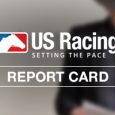“Turn simple disciplines into massive success and happiness.”
That was the claim on the cover a book that a co-worker recently suggested that I read, The Slight Edge, by Jeff Olson. The premise of the book is that by having discipline and doing small things to improve yourself over time, you will become more successful and happy. I enjoyed reading this book and found that it was logical and well written. While it isn’t going to give you the overnight path to success, it does give you a well-reasoned approach to achieving success in the long term.
Like every book I read, the first question I ask myself is how can I apply this to my handicapping?
Do something to improve every day
Make a goal of handicapping one race a day. This will keep your handicapping sharp between when you are regularly playing the races. It will give you the chance to play a bit on paper and track new angles. You can take this one step further and watch the replay of the race you handicapped. Perform a post-mortem on your performance. Where were you right and wrong in your assessment of the race?
Continuous learning
If you think that you know it all, you are wrong. There is always some new facet or angle that you could be mastering in your handicapping. For me, I am working on how to select the right late-pace horse when I know that the early speed is going to be weak and fail.
Keep momentum on your side
Objects that are in motion stay in motion, right? When you are handicapping each day and working on your various systems, it is easier to stay in the mode of handicapping. It is like working out, if you get up and do it each day you will continue to do it, but when you stop working out for a while, it is hard to get back into it!
Cultivate new habits
Rome wasn’t built in a day — and becoming a successful handicapper doesn’t happen overnight. You need to put in the work. You need to track your results and see what is and isn’t working. You need to embrace your strengths and eliminate your weaknesses. Maybe you’ll find out that you are good at claiming turf routes or projecting the probable pace.
Find a mentor
It has been said that you are the average of the five people you spend the most time with in your life. I’ve been lucky to have some great handicappers in my life. I learned a lot from my Uncle Dutch when I was a teenager sitting in the grandstand at Monmouth Park. I have been bouncing ideas off of guys like my friends Fraser, Derek Simon, and Dave Schwarz for years. Often they bring a fresh perspective to whatever I am trying to tackle at the time. Surround yourself with good handicappers and horseplayers and your skills will improve!
Have a plan
I am not saying you need to arrive at the track with every wager laid out, but you need to know what races you are going to target before you get there. Triage the race card so you know which races you should focus on first. Sometimes knowing where you have a strong play or an advantage is good, but being able to adapt and reset after scratches, changes and track conditions is better!
Let’s face it, most horseplayers lose money every year. Very few people are successful enough to make a living playing the races. Having any kind of edge will give you an advantage over your fellow horseplayers, make handicapping more fun, and will equate to profits.




